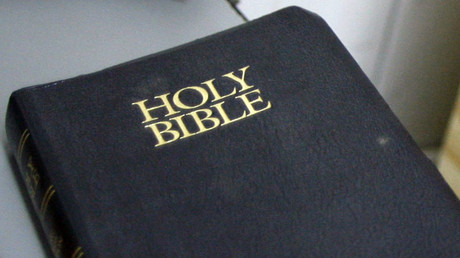Moscow parents complain about ‘Orthodox Christian propaganda’ in school textbooks

One of the parents, Inna Gerasimova, told Kommersant daily that she and several other parents had decided to file the complaint after reading the Origins textbook given to their fifth-grade children, who are 10-11 years of age, for a course called ‘The Foundations of Spiritual and Moral Culture of the Peoples of Russia.’
“I am an atheist myself, but religious people were also upset. Half of families in our school are Muslims, because this is a new Moscow district,” Gerasimova said. She also noted, “We have Jewish families as well as Roman Catholics and Adventists.”
According to the complainants, the book presents the existence of demons and guardian angels as fact, while insisting that miracles can be performed with the help of icons and holy water.
The parents said that they had gone to the education ministry’s local department to point out the flaws in the textbook, but there they were told to address their complaints to the school administration which, in turn, insisted that the textbook had been introduced at the department’s initiative in the first place. As a result, the parents decided to file in an official complaint with the prosecutors’ office.
The press service of the Moscow Directorate of the Prosecutor General’s Office could not immediately confirm that they had received the complaint.
Russia introduced ‘The Foundations of Spiritual and Moral Culture of the Peoples of Russia’ course in 2015. It is taught from the 5th to 10th grade and parents in Moscow can choose whether they want their child to use the Origins textbook for the course. Textbooks on Muslim and Buddhist cultures are available in other regions, as well as books on general ethics and the history of world religions.
The Russian Constitution describes the Russian Federation as a strictly secular state and proscribes the authorities from giving preference to any religion, while also prohibiting them from imposing restrictions on the religious freedom of Russian citizens.
The Russian Supreme Court has previously rejected complaints from Muslim groups about a ban on Muslim headgear that was introduced last fall in schools in two Russian regions – Stavropol and Mordovia. The court ruled that this measure did obstruct Muslims’ faith in God and did not infringe on their constitutional rights.










